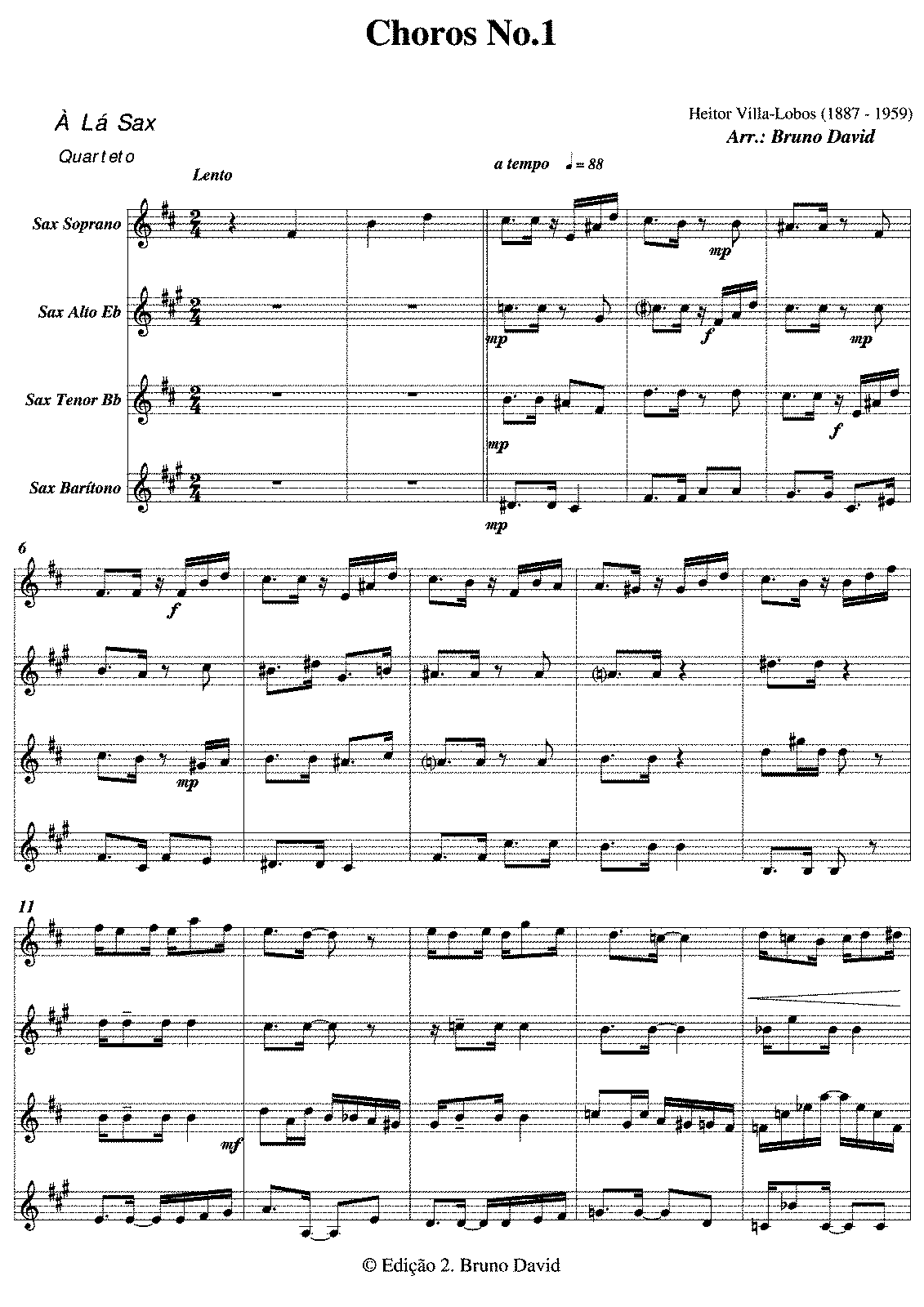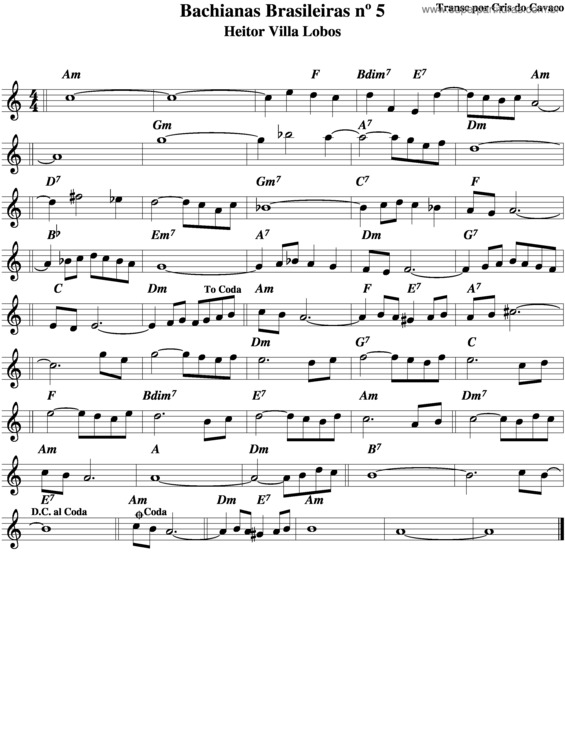

Villa-Lobos also sought to weld together specific idioms: thus the Bachianas Brasileiras series was based on the idea of fusing the influences of J.S. Wagner, Puccini, Debussy, Milhaud, Ravel, and Bela Bartok, while in Europe he did meet leading figures such as Serge Prokofiev and Leopold Stokowski (Dasila 1979, pp169-170 Fraga 1996). Others have suggested a wide range of influences across his compositional career, e.g.

Though unwilling to admit influences from contemporary classical composers he had a lifelong fascination with the music of J.S. It has also been suggested that early teachers such as Angelo França, Frederico Nascimento, and Francisco Braga may have had a lasting impression on the young composer (Fraga 1996). He was largely self-taught, having been expelled from the conservatory for rejecting criticism of his composition, but studied compositional works such as Vincent d'Indy's Cours de composition musicale, and undertook further musical explorations in Europe (Appleby 2002, p27, p46 Gates 1939). Roquette Pinto and Astolfo Tavares, and had a sustained nationalist interest in Brazilian and Amazonian themes (Appleby 2002, pp24-25, p58). Even if Villa-Lobos did not personally engage in sustained collection of indigenous music, he was willing to utilise materials and songs collected by others, e.g. He did engage in trips to northeast and southern Brazil during the ages of 18-25 years (Fraga 1996), though doubts have been raised about the degree to which he could access local music from other regions.

Thus Villa- Lobos was influenced by great improvisers such as Ernesto Nazareth (Appleby 2002, p19). During his youth Villa-Lobos was influenced by the street music of Brazil, particularly the choro groups, which would often include a flute, guitars and guitar-like instruments, and used patterns of improvisation on well-known songs (Appleby 2002). He is viewed as a composer working freely across folk, national, and modernist idioms, using diverse lyrical, impressionist, romantic and classical elements. One of the most popular of modern Brazilian composers, Heitor Villa-Lobos wrote a wide range of music for piano, guitar, orchestra, voice, mixed chamber ensembles, harp, and even mouth organ. Villa- Lobos was born in Rio de Janeiro, and was in his early years taught the cello by his father, who was a good amateur player (Fraga 1996).

Heitor's surname is sometimes written in the Spanish form as Villalobos, which he rejected in favour of the Portuguese hyphenated form (Appleby 2002, p2). James Ferguson2008 History, Politics and Culture Heitor Villa-Lobos: Brazil’s Master of Musical Fusion Heitor Villa-Lobos (1887-1959) was one of Brazil’s finest 20 th century composers.


 0 kommentar(er)
0 kommentar(er)
